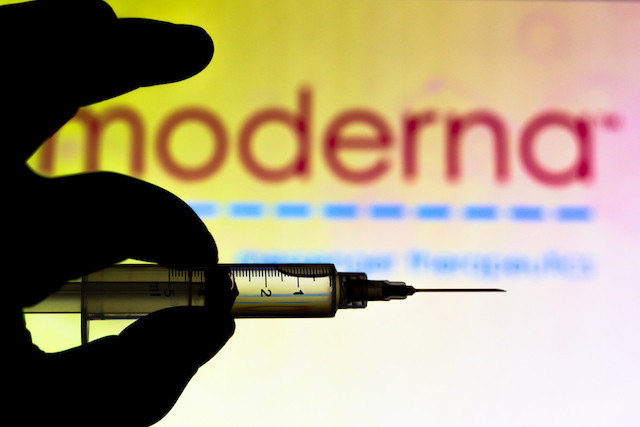The European Commission announced it granted a conditional marketing authorisation on Wednesday, after the European Medicines Agency (EMA) assessed the vaccine’s safety, effectiveness and quality.
The bloc had pre-ordered 160 million doses of the vaccine which, are expected to be delivered during the first three quarters of 2021.
Combined with the Biontech/Pfizer vaccine, it brings to 460 million the total number of vaccine doses secured by the EU. Commission president Ursula von der Leyen said that “more vaccines will come.”
Moderna applied for marketing authorisation on 30 November 2020, which was subject to a rolling review from the EMA since.
A conditional marketing authorisation is one of EU’s regulatory mechanisms for facilitating early access to medicines that fulfil an unmet medical need, including in emergency situations such as the current pandemic.
How it works
The Moderna vaccine is based on messenger RNA (mRNA), which transfers instructions from DNA to the cells’ protein making machinery. In an mRNA vaccine, these instructions produce harmless fragments of the virus, which the human body uses to build an immune response to prevent or fight disease. When a person is given the vaccine, their cells will read the genetic instructions and produce a spike protein, a protein on the outer surface of the virus which it uses to enter the body's cells and cause disease. The person's immune system will then treat this protein as foreign and produce natural defences, antibodies and T cells, against it.
